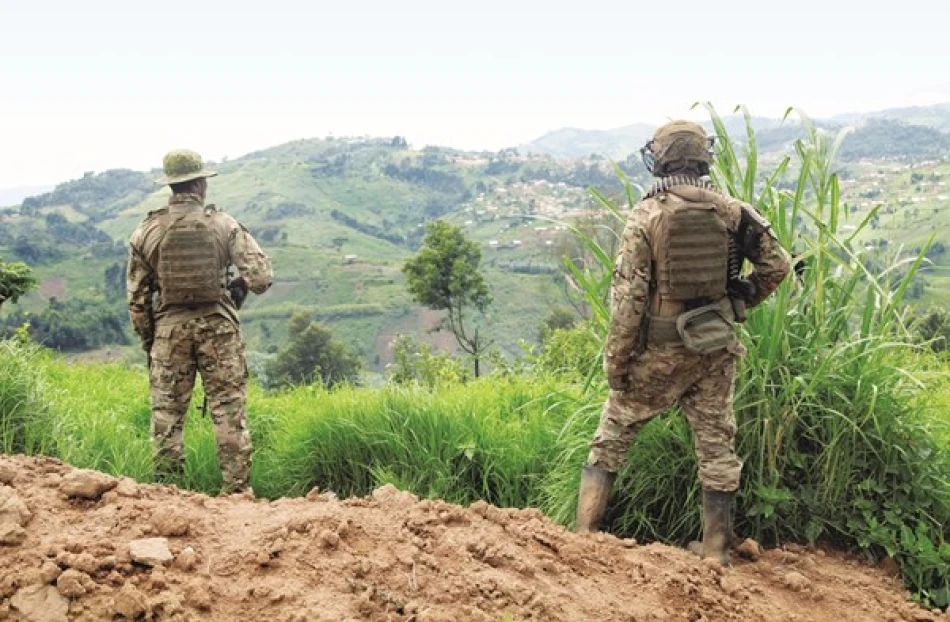
Deadly Attack by Armed Assailants Strikes Democratic Republic of Congo
Nine Civilians Killed in Eastern Congo as Allied Democratic Forces Strike Back Against Military Operations
At least nine people were killed in a brutal overnight attack by armed militants in eastern Democratic Republic of Congo, marking another deadly escalation in the region's long-running security crisis. The assault on the town of Oicha represents a calculated retaliation by the Allied Democratic Forces (ADF) against ongoing military operations, highlighting the persistent challenge of containing armed groups in one of Africa's most volatile regions.
Deadly Assault Targets Civilians in Strategic Location
The attack unfolded during the night between Saturday and Sunday in Oicha, a town located just 30 kilometers north of Beni, the military command center for Congolese forces in North Kivu province. Armed militants systematically targeted civilians, looting shops and burning homes in what appears to be a coordinated campaign of terror.
Isaac Kavalami, head of the local civil society organization representing unions and associations, confirmed that "during this incursion, the Allied Democratic Forces killed eight civilians and one police officer." A journalist at the Oicha General Hospital morgue witnessed nine bodies on Sunday, some bearing stab wounds that underscore the brutal nature of the assault.
Military Response and Strategic Implications
Congolese army spokesperson Marc Ilongo directly blamed "Allied Democratic Forces terrorists" for executing the attack, describing it as deliberate retaliation against civilian populations in response to ongoing military operations in the region.
This pattern of civilian targeting represents a dangerous escalation in the ADF's tactics, shifting from direct military confrontation to asymmetric warfare designed to undermine government authority and terrorize local populations.
The Broader Security Challenge
The attack on Oicha illustrates the fundamental security dilemma facing the Democratic Republic of Congo. Despite decades of international intervention and billions in aid, armed groups continue to operate with impunity across eastern provinces, exploiting weak state capacity and rugged terrain.
The ADF, originally a Ugandan rebel group that has operated in eastern Congo since the 1990s, has increasingly adopted tactics reminiscent of other regional militant organizations. Their ability to strike civilian targets near major military installations demonstrates the limits of current counter-insurgency strategies.
Regional Implications and International Response
This latest violence underscores the ongoing failure of both domestic and international efforts to stabilize eastern Congo. The region's mineral wealth, including cobalt essential for global battery production, makes continued instability a concern for international supply chains and regional development.
The targeting of civilians also raises questions about the effectiveness of the United Nations' MONUSCO peacekeeping mission, one of the world's largest and most expensive peacekeeping operations. Despite its presence, armed groups continue to operate across vast territories, suggesting fundamental flaws in current stabilization approaches.
Economic and Humanitarian Consequences
Beyond the immediate human cost, such attacks devastate local economies and perpetuate cycles of displacement that have affected millions across eastern Congo. The systematic destruction of shops and homes in Oicha represents not just immediate violence but long-term economic warfare against civilian populations.
For international observers and policymakers, the Oicha attack serves as another reminder that military solutions alone cannot address the complex web of political, economic, and social factors that enable armed groups to flourish in eastern Congo. Without addressing underlying governance challenges and economic marginalization, similar attacks are likely to continue plaguing the region.
Most Viewed News

 Layla Al Mansoori
Layla Al Mansoori






